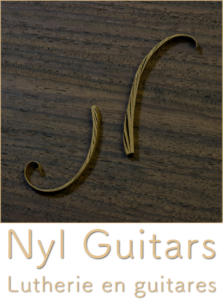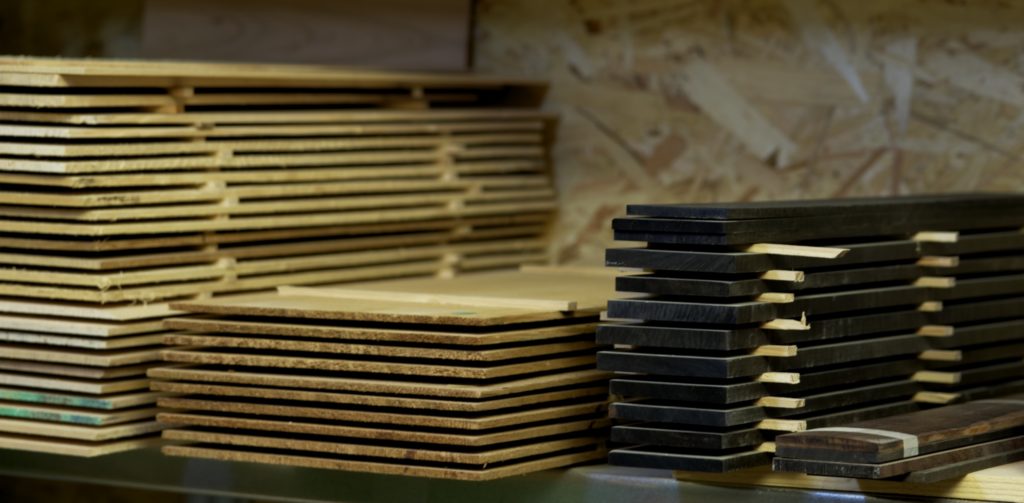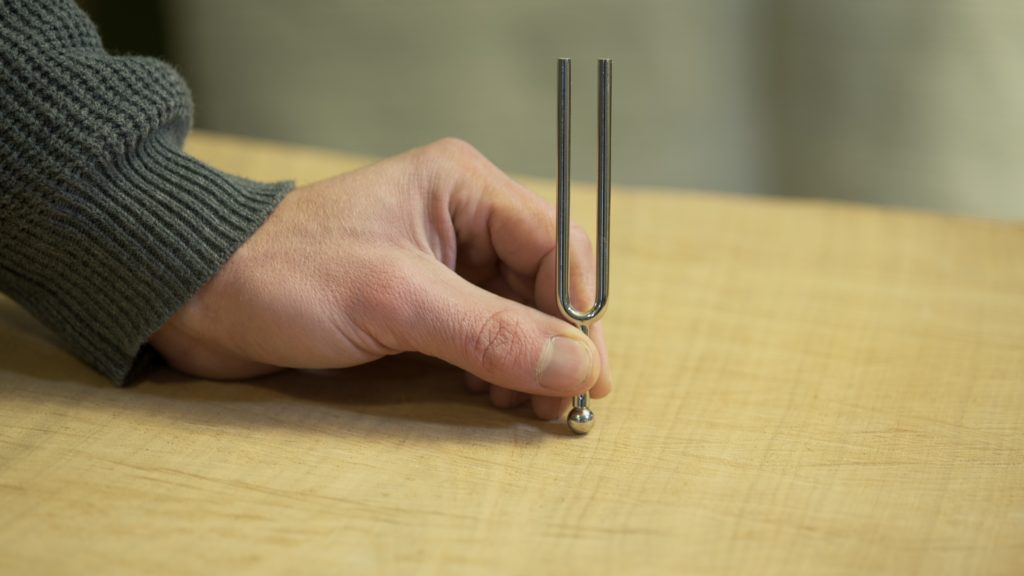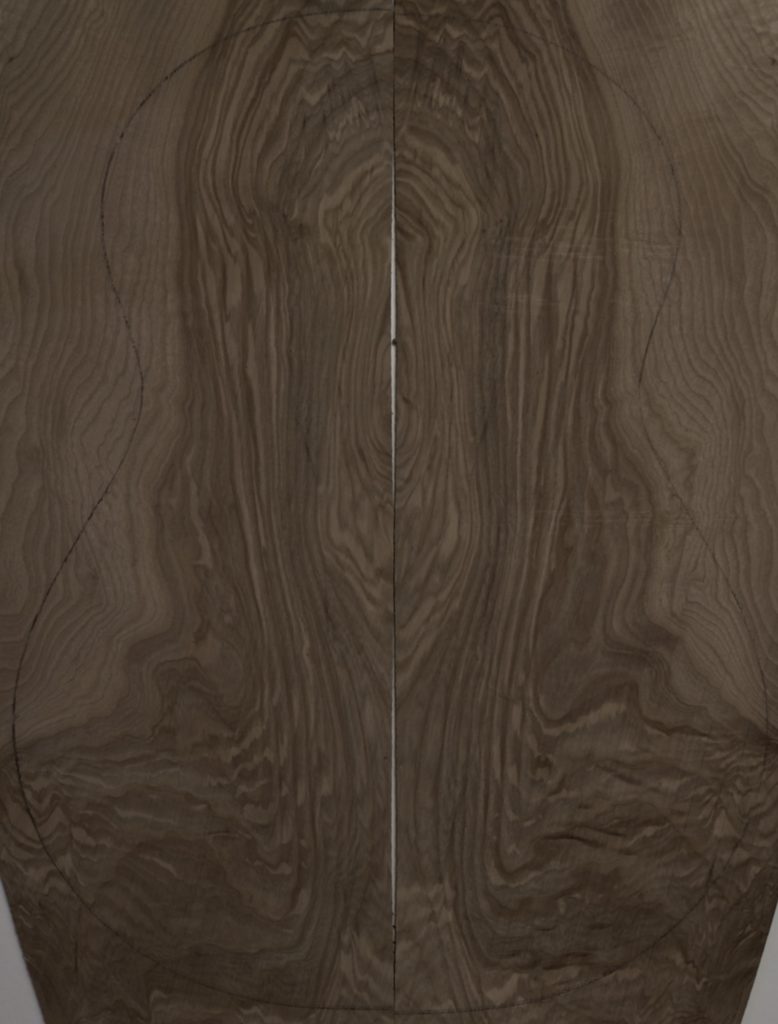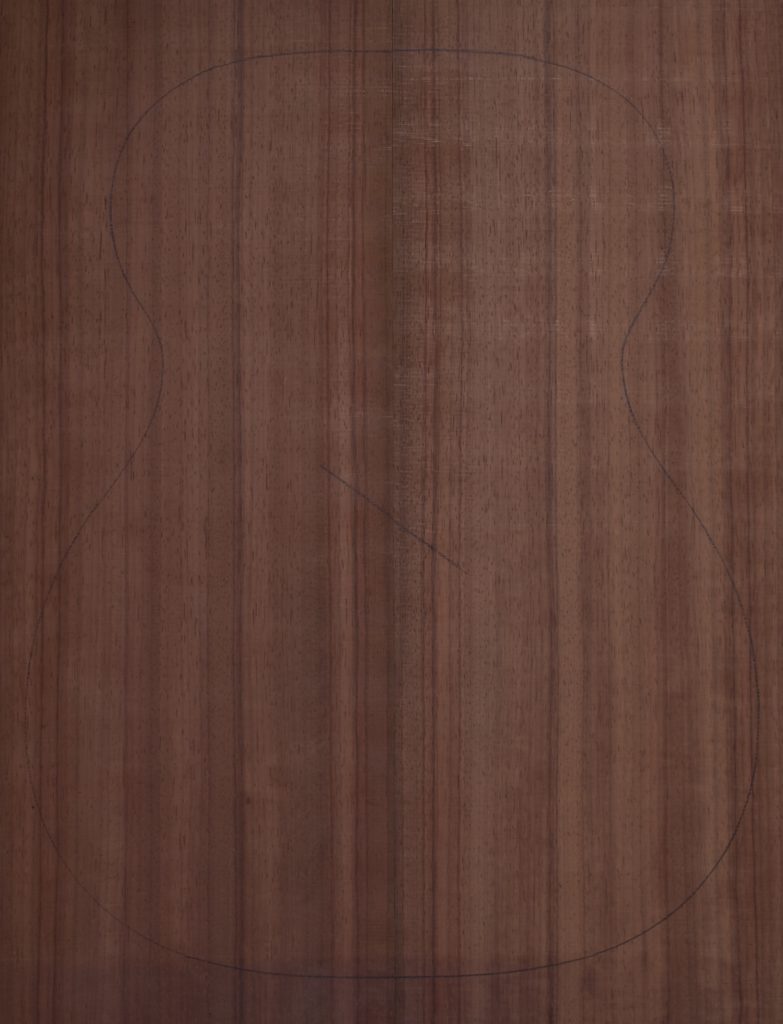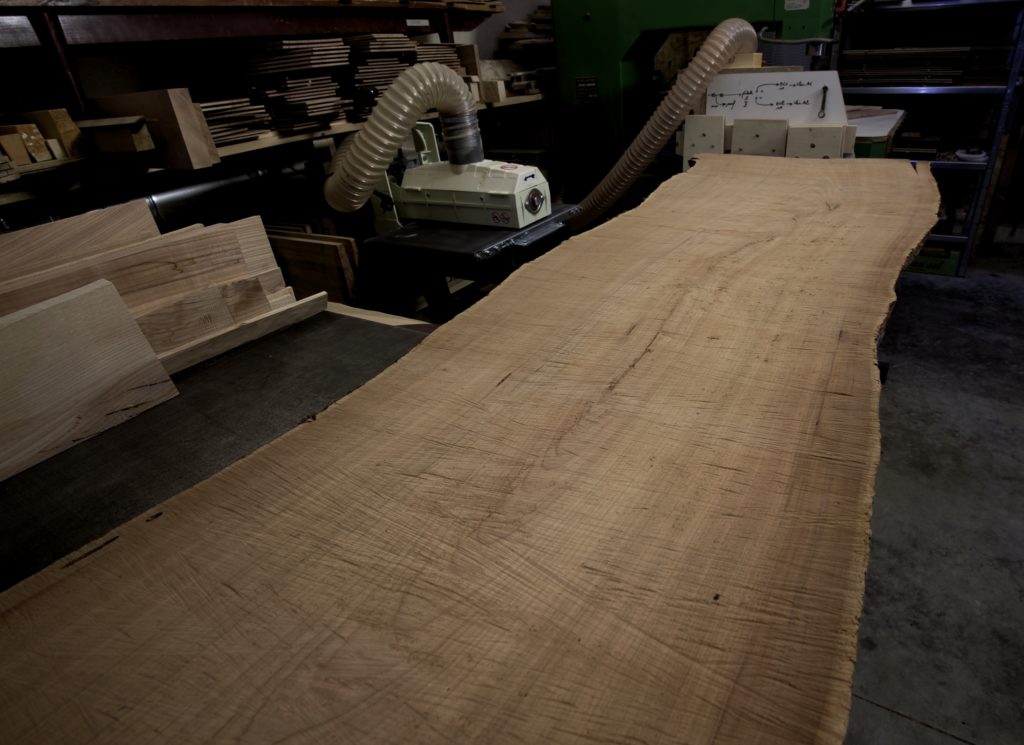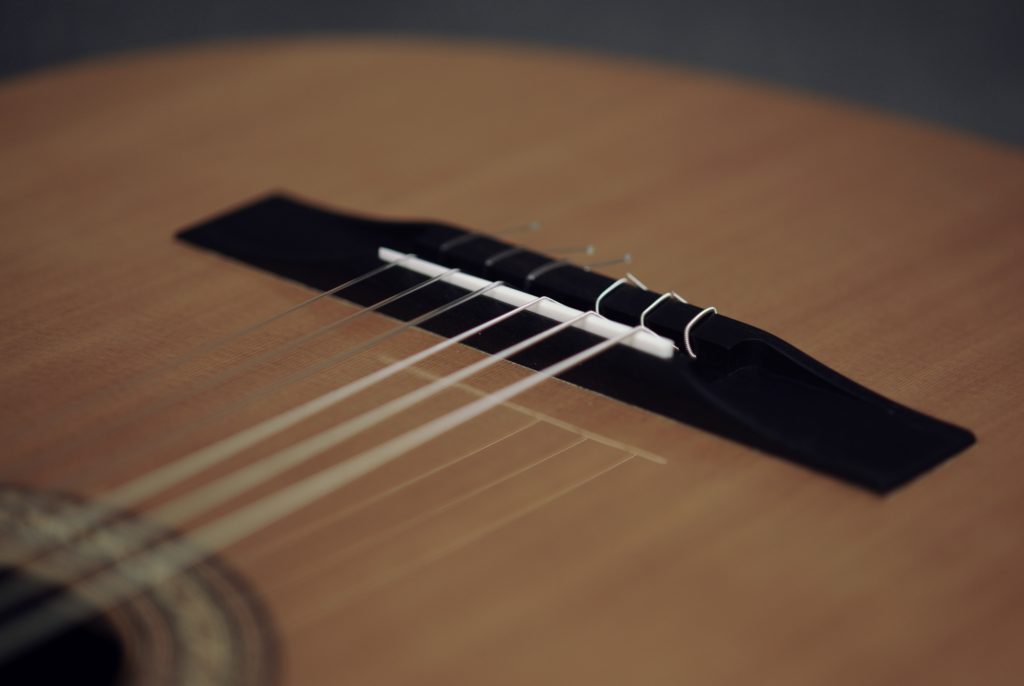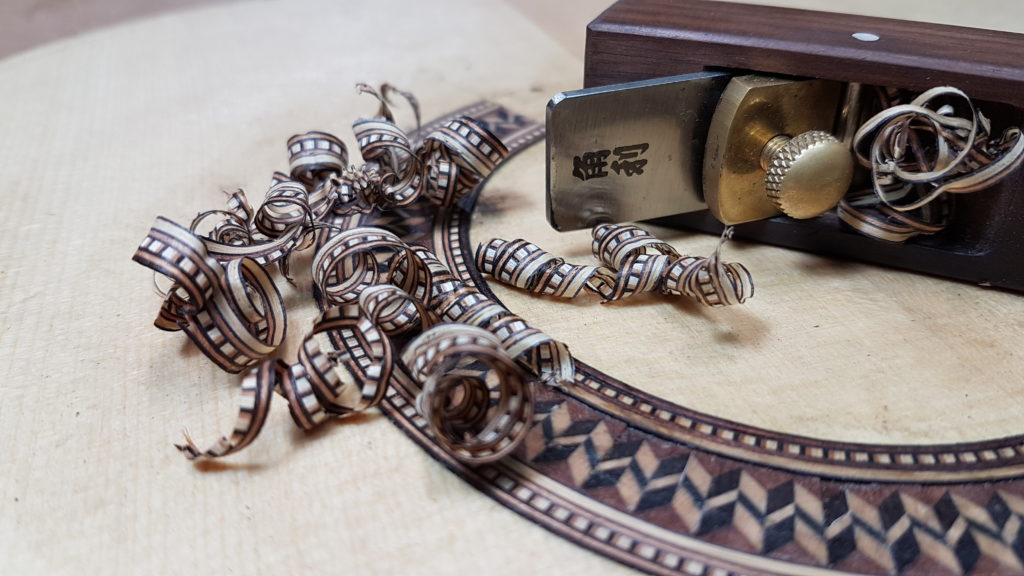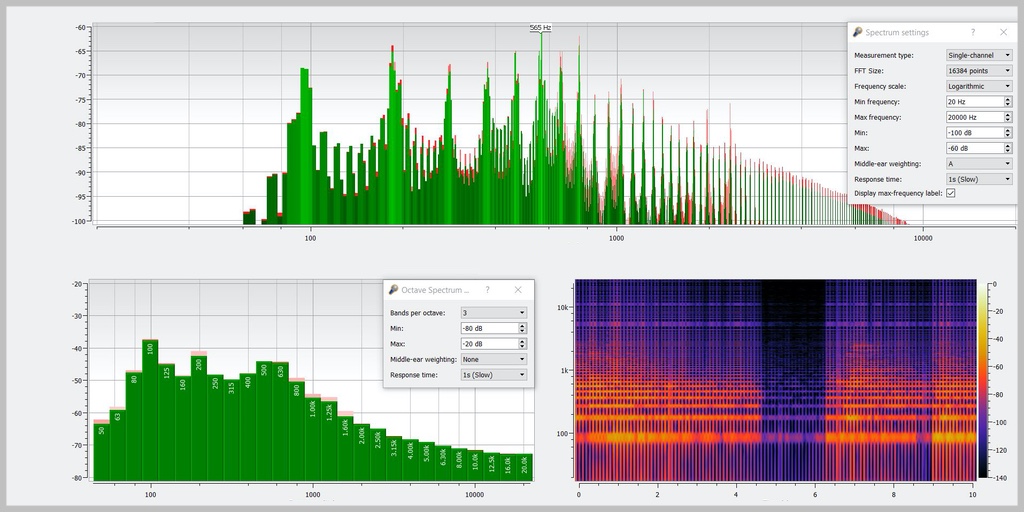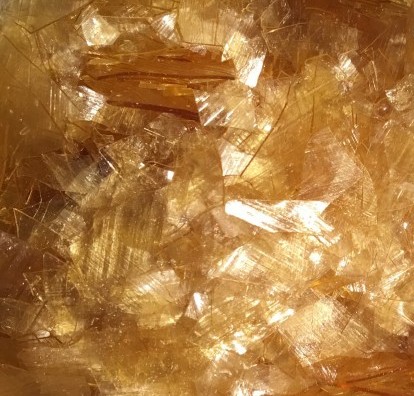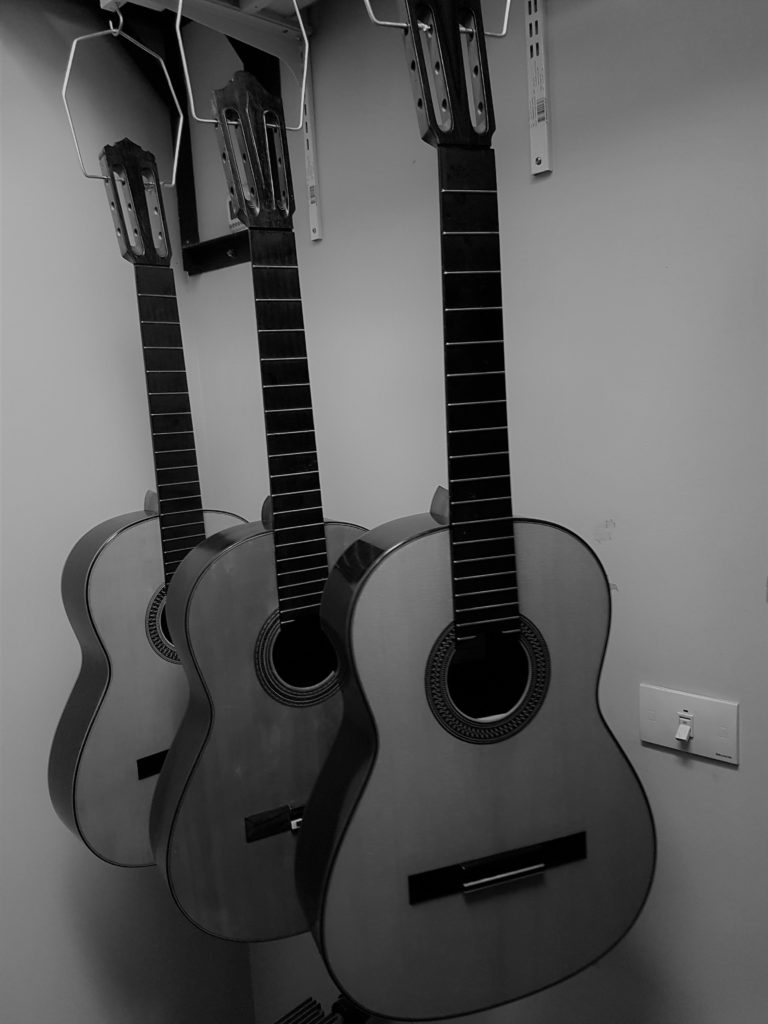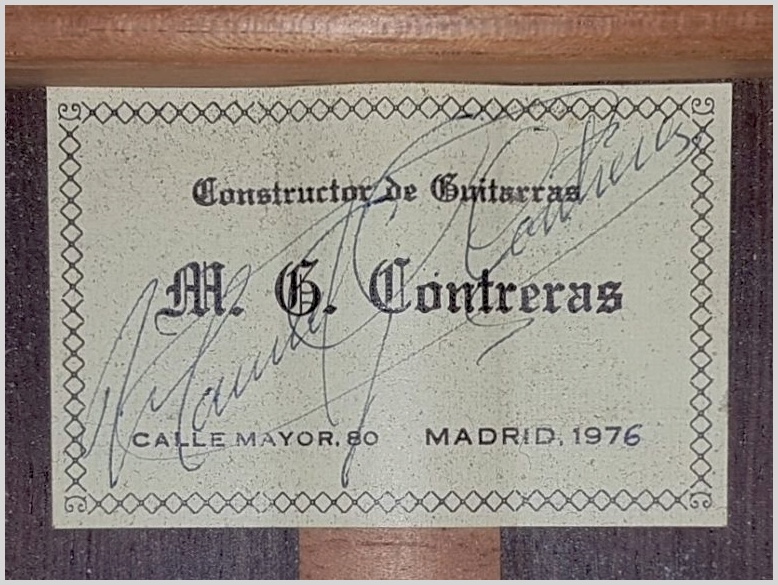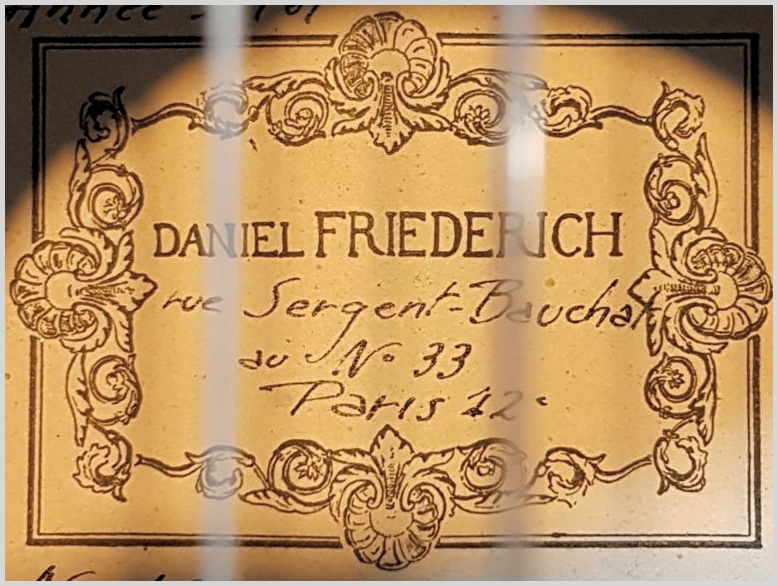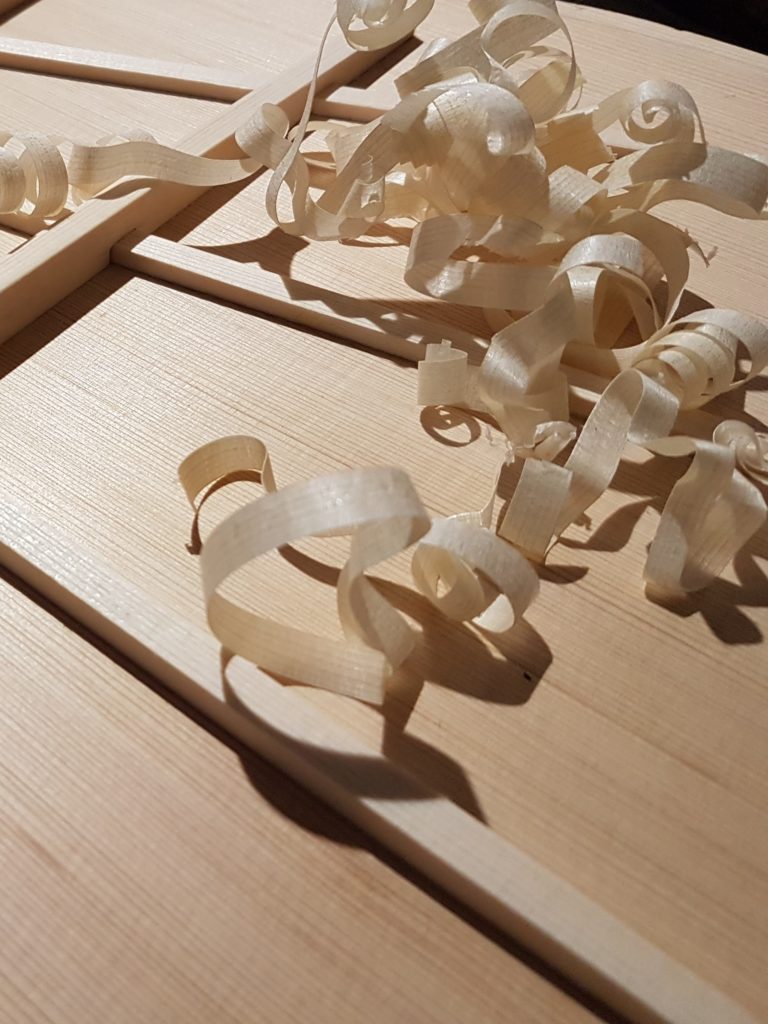Tonewoods
I mainly use european woods or exotic woods from sustainly managed forets. The discovery of the Leonardo research project at the holy grail show in 2018 at Berlin conforted me to follow ths way with a scientist approach.
I myself cut old and rare woods of which I know the origin and history. The instruments become unique and have a story.
Handmade guitar making
A manufacturer of industrial guitars must standardize and make series from a homogeneous and large stock of wood. By this standardization, remarkable tree with exceptional acoustic properties can’t be use. They focuse almost exclusively on tropical woods with overexploitation problems (Madasgacar and Rio rosewood).
There is great variability in mechanical and acoustic properties between trees of the same species and within the same tree.
To have a homogeneity in the quality of manufacture, it is therefore necessary to leave the industrial averages and to work each soundboard and each back according to their respective properties.
The traditional guitar making uses modern techniques just like the industrialists but they are accompanied by rigorous finishes that only the hand of the man and the know-how can bring.
Finally, an artisanal manufacture offers the possibility to adapt to the requirements and the morphology of the guitarist.
Guitar making specificities
Varnishing
This aspect and the toxicity of the solvents associated with them, led me to prefer the use of natural varnishes with exceptional acoustic properties and free of toxic solvents for the environment and humans. The quality of the shellac is taken into account, but – just like in cooking – it is above all the recipe and the methodology, which will lead to a varnish that does not hamper the acoustic qualities of the instrument.
I make french polish like the french polish master of the 20th century, in order to obtain sufficient depth and protection. The layers are very thin but very numerous. The varnishing process is spread over several months. For the neck I use a different natural varnish recipe which is more resistant to perspiration.
Services proposés
- Maintenance of fingerboard, frets, varnish and tuning machines or pegs ;
- Settings, finest handmade saddles bones ;
- Refrettage, Nivellement frettes ;
- Top, back, sides, neck repairing ;
- Sensors and preamplification installation ;
- French polish.
Final guitar settings is a meticulous and decisive step for the guitar player comfort
Guitars tests, informations, contact : contact@nylguitars.com
